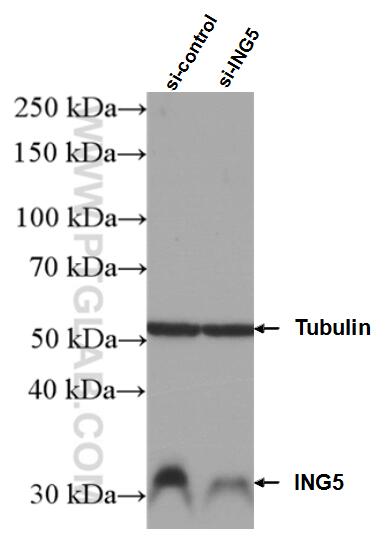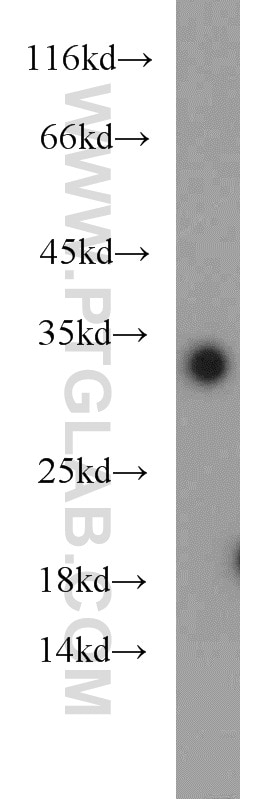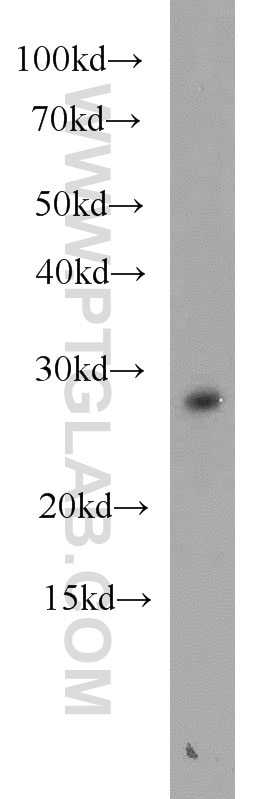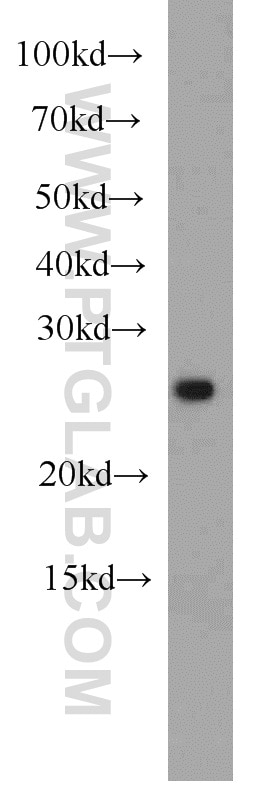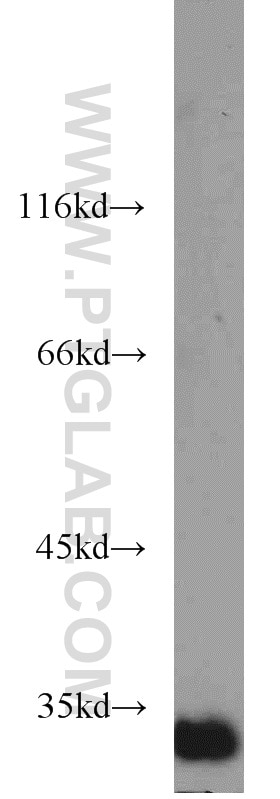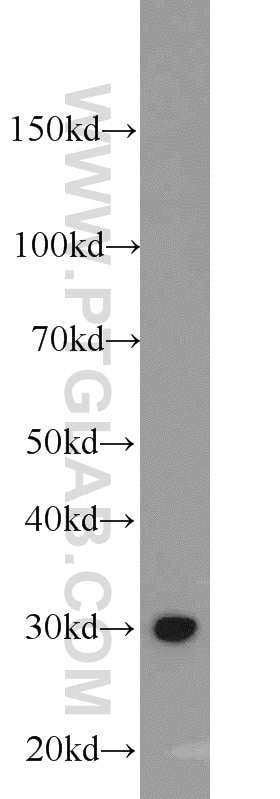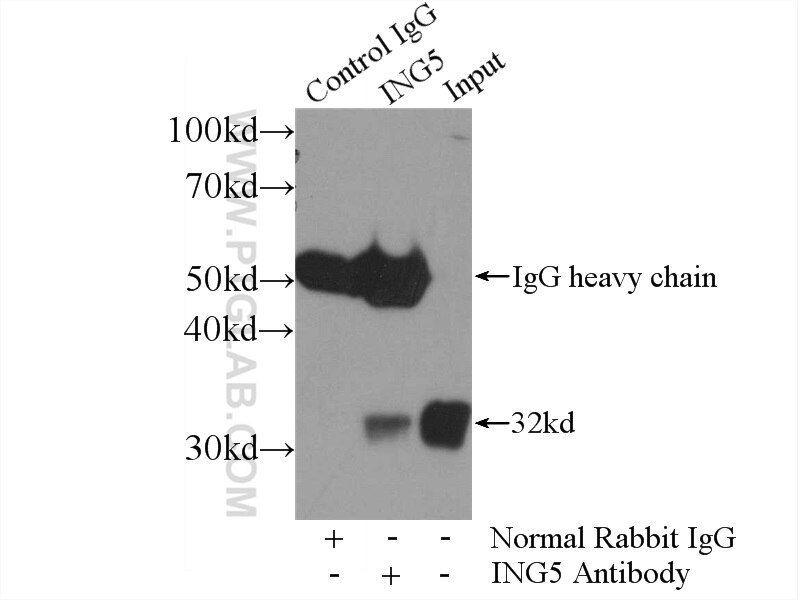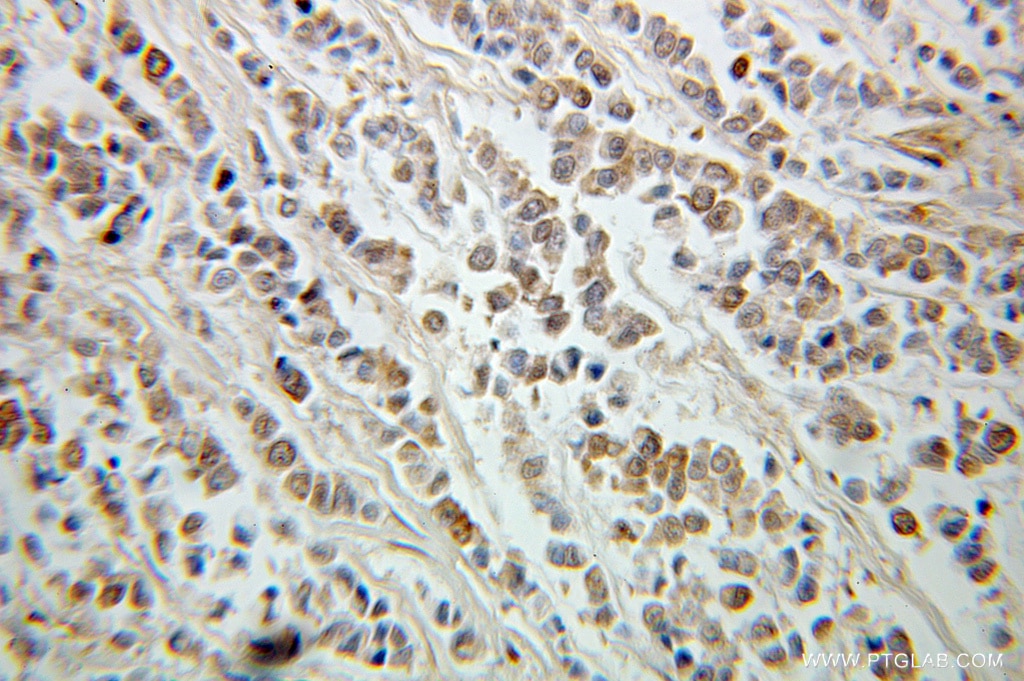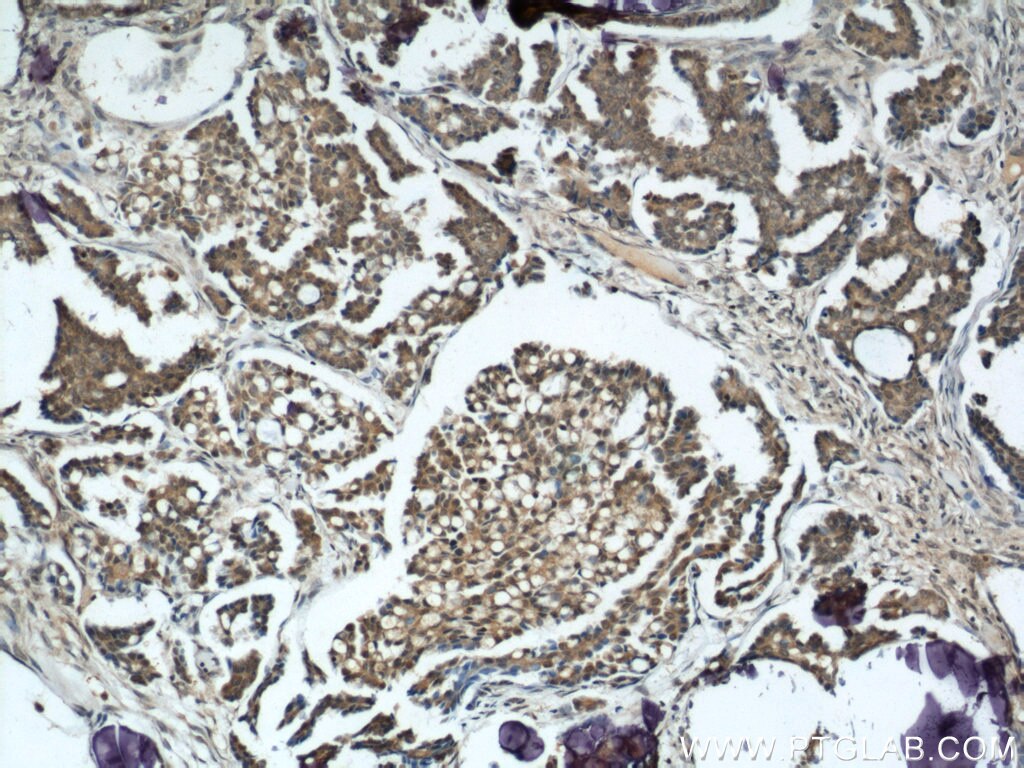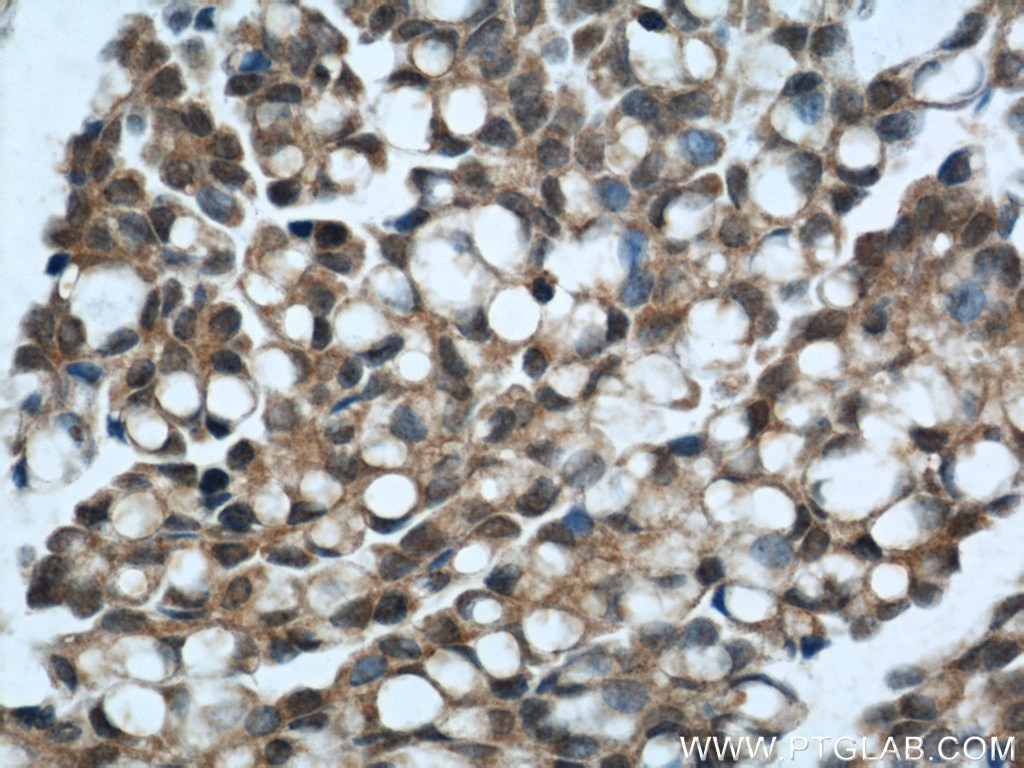- Featured Product
- KD/KO Validated
ING5 Polyklonaler Antikörper
ING5 Polyklonal Antikörper für WB, IP, IHC, ELISA
Wirt / Isotyp
Kaninchen / IgG
Getestete Reaktivität
human, Maus, Ratte
Anwendung
WB, IP, IF, IHC, ELISA
Konjugation
Unkonjugiert
Kat-Nr. : 10665-1-AP
Synonyme
Galerie der Validierungsdaten
Geprüfte Anwendungen
| Erfolgreiche Detektion in WB | Jurkat-Zellen, HEK-293-Zellen, Mausnierengewebe, PC-3-Zellen |
| Erfolgreiche IP | HEK-293-Zellen |
| Erfolgreiche Detektion in IHC | humanes Kolonkarzinomgewebe, humanes Ovarialkarzinomgewebe Hinweis: Antigendemaskierung mit TE-Puffer pH 9,0 empfohlen. (*) Wahlweise kann die Antigendemaskierung auch mit Citratpuffer pH 6,0 erfolgen. |
Empfohlene Verdünnung
| Anwendung | Verdünnung |
|---|---|
| Western Blot (WB) | WB : 1:500-1:1000 |
| Immunpräzipitation (IP) | IP : 0.5-4.0 ug for 1.0-3.0 mg of total protein lysate |
| Immunhistochemie (IHC) | IHC : 1:20-1:200 |
| It is recommended that this reagent should be titrated in each testing system to obtain optimal results. | |
| Sample-dependent, check data in validation data gallery | |
Veröffentlichte Anwendungen
| KD/KO | See 5 publications below |
| WB | See 20 publications below |
| IHC | See 9 publications below |
| IF | See 4 publications below |
Produktinformation
10665-1-AP bindet in WB, IP, IF, IHC, ELISA ING5 und zeigt Reaktivität mit human, Maus, Ratten
| Getestete Reaktivität | human, Maus, Ratte |
| In Publikationen genannte Reaktivität | human, Maus, Ratte |
| Wirt / Isotyp | Kaninchen / IgG |
| Klonalität | Polyklonal |
| Typ | Antikörper |
| Immunogen | ING5 fusion protein Ag1059 |
| Vollständiger Name | inhibitor of growth family, member 5 |
| Berechnetes Molekulargewicht | 28 kDa |
| Beobachtetes Molekulargewicht | 28-32 kDa |
| GenBank-Zugangsnummer | BC005370 |
| Gene symbol | ING5 |
| Gene ID (NCBI) | 84289 |
| Konjugation | Unkonjugiert |
| Form | Liquid |
| Reinigungsmethode | Antigen-Affinitätsreinigung |
| Lagerungspuffer | PBS mit 0.02% Natriumazid und 50% Glycerin pH 7.3. |
| Lagerungsbedingungen | Bei -20°C lagern. Nach dem Versand ein Jahr lang stabil Aliquotieren ist bei -20oC Lagerung nicht notwendig. 20ul Größen enthalten 0,1% BSA. |
Hintergrundinformationen
ING5, also named as p28ING5, belongs to the ING family. It is a component of the HBO1 complex which has a histone H4-specific acetyltransferase activity, a reduced activity toward histone H3 and is responsible for the bulk of histone H4 acetylation in vivo. ING5 is a component of the MOZ/MORF complex which has a histone H3 acetyltransferase activity. Through chromatin acetylation it may regulate DNA replication and may function as a transcriptional coactivator. (PMID:12750254) Altered ING5 expression and its shift into the cytoplasm may have an impact on the malignant transformation of colorectal epithelial cells and should be considered as a biomarker for colorectal carcinogenesis. (PMID:21193223)
Protokolle
| Produktspezifische Protokolle | |
|---|---|
| WB protocol for ING5 antibody 10665-1-AP | Protokoll herunterladen |
| IHC protocol for ING5 antibody 10665-1-AP | Protokoll herunterladen |
| IP protocol for ING5 antibody 10665-1-AP | Protokoll herunterladen |
| Standard-Protokolle | |
|---|---|
| Klicken Sie hier, um unsere Standardprotokolle anzuzeigen |
Publikationen
| Species | Application | Title |
|---|---|---|
Cell Res LRP6 downregulation promotes cardiomyocyte proliferation and heart regeneration.
| ||
Oncotarget The miR-193a-3p-regulated ING5 gene activates the DNA damage response pathway and inhibits multi-chemoresistance in bladder cancer. | ||
Oncotarget ING5 inhibits cancer aggressiveness via preventing EMT and is a potential prognostic biomarker for lung cancer. | ||
Oncotarget ING5 suppresses proliferation, apoptosis, migration and invasion, and induces autophagy and differentiation of gastric cancer cells: a good marker for carcinogenesis and subsequent progression.
| ||
Oncotarget Upregulated in Hepatitis B virus-associated hepatocellular carcinoma cells, miR-331-3p promotes proliferation of hepatocellular carcinoma cells by targeting ING5.
|
